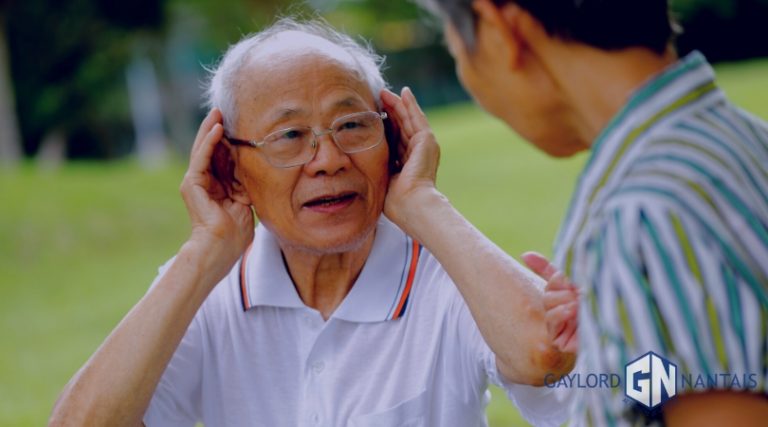If your job involves exposure to loud noise, you may be at risk for hearing loss. According to the National Institute for Occupational Safety and Health (NIOSH), about 22 million workers in the United States are exposed to hazardous noise levels at work.
Although hearing loss is a common condition, many people need to learn how to file a claim or what benefits they’re entitled to. This blog will provide the facts you need to know before filing a workplace hearing loss claim.
- You must have suffered hearing loss while on the job.
If you’re reading this, you may have suffered hearing loss while on the job. Whether due to a one-time exposure to loud noise or from years of exposure to lower noise levels, you may be eligible for workers’ compensation benefits if your hearing loss is work-related.
However, there are a few things you should know before filing a claim for hearing loss.
First, workers’ compensation laws vary from state to state, so it’s essential to find out what the requirements are in your state.
Secondly, you will need to have your hearing loss diagnosed by a certified audiologist and have documentation from your employer showing that your hearing loss is work-related.
If you think you may have work-related hearing loss, don’t wait to get help. The sooner you file a claim, the sooner you can get the benefits you deserve.
- You must have your hearing loss diagnosed by a licensed audiometrist or other medical professional.
If you think you might have hearing loss, it’s essential to get a diagnosis from a licensed audiometrist or other medical professionals. There are a few reasons for this:
First, only a professional can give you a definitive answer as to whether you have hearing loss. If you self-diagnose, you could be wrong and end up wasting time and money on treatments that aren’t necessary.
Second, even if you have hearing loss, getting an accurate diagnosis is essential to get the most effective treatment possible. The type and severity of your hearing loss will determine the treatment options available to you.
Third, suppose you plan on filing a hearing loss claim with your insurance company. They will likely require a diagnosis from a licensed audiometrist or other medical professionals to process your claim. Getting a diagnosis is a necessary first step in the claims process.
So, if you have hearing loss, make an appointment with a licensed audiometrist or other medical professionals as soon as possible. It could be the first step towards regaining better hearing.
- You must notify your employer of your hearing loss within 30 days of diagnosis.
If you have been diagnosed with hearing loss, you must notify your employer of your condition within 30 days. This is important because your employer may be required to provide you with accommodations under the Americans with Disabilities Act (ADA).
Your employer is not required to provide accommodations if they are unaware of your hearing loss. Therefore, you must notify them immediately after receiving your diagnosis.
You can notify your employer of your hearing loss in a few different ways. You can send them a written notice or speak to them in person. Whichever method you choose, ensure you include information about what accommodations you will need to perform your job duties.
Your employer is not required to provide you with any accommodation that would create an undue hardship for your business. However, they must work with you to try and find a solution that works for both of you.
If you have any questions about notification requirements or ADA accommodations, don’t hesitate to get in touch with an experienced employment law attorney.
- You must file a claim with the state workers’ compensation board within two years of your last noise exposure.
If you have been exposed to loud noise at work and have suffered hearing loss, you must file a claim with your state’s workers’ compensation board within two years of your last exposure. This is important because many people need to realize that they have a time limit to file their claims.
There are a few things to keep in mind when filing your claim.
First, you will need to prove that your hearing loss was caused by exposure to loud noise at work. This can be done by providing medical records or testimony from yourself or witnesses.
Second, you must show that you filed your claim within two years. Again, medical records or testimony can be used to support this.
If you successfully prove your case, you may be entitled to workers’ compensation benefits, including payment for medical expenses and lost wages. It is important to note that each state has different laws regarding workers’ compensation, so it is best to speak with an attorney before filing your claim.
- You must prove that your hearing loss is directly related to your job to receive benefits.
To receive benefits for hearing loss, you must prove that your hearing loss is directly related to your job. There are a few different ways that you can do this.
You will need to have a comprehensive audiogram done by a licensed audiologist. This audiogram must be completed within one year of your last exposure to noise at work.
Conclusion
You may be entitled to compensation if you or a loved one has suffered from hearing loss. The first step is to contact an experienced hearing loss lawyer to discuss your case.
At Gaylord and Nantais Attorneys at Law, we have over 40+ years of experience handling hearing loss claims. We will review your case for free and help you understand your legal options.
There is no risk in contacting us to discuss your case. We only get paid if we win your case and advance all the costs of pursuing your claim.
You can reach us by phone at (562) 424-9967 or visit our website to learn more about our firm and our track record of success.











